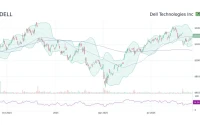So I’m scrolling through my feeds, wading through the usual sludge of AI-generated garbage, crypto grifters promising the moon, and another dozen streaming services nobody asked for. My brain is basically digital mush. Then a press release about a church book sale in some town called Parkersburg hits my inbox, and I swear, for a second, I thought I’d fallen through a wormhole back to 1998.
A book sale. At a church. A 75-year-old book sale.
This isn’t just an event; it’s a cultural artifact. A fossil preserved in amber. The Trinity Episcopal Church is apparently holding this thing from Wednesday to Saturday. They’ve got hours and a street address and everything, like it's a real, physical place where people go. And for only the second time in 75 years, they’re offering a door prize. A copy of “Wicked.” The audacity.
###
A Business Model So Bad, It's Almost Good
The Absurd Economics of a Church Basement
This is where my brain really started to short-circuit. I read this quote from a volunteer, Donna Coleman, and had to read it twice to make sure I wasn't hallucinating.
She says, “This year, we researched the books for rarity and value... Then we discounted the actual market value to make these books more competitively priced for our Mid-Ohio Valley customers.”
Let’s just unpack that. They did the market research. They found the actual value. And then they… lowered the price? On purpose? What kind of bizarro-world, anti-capitalist nonsense is this? Every founder I know would have a seizure reading that sentence. They’d find the market value, add 30% for "disruption," call it a "curated literary experience," and sell you a subscription for it.
But no, here at the Trinity Episcopal Church, they’re just making things cheaper because… reasons. It’s so aggressively earnest it feels like a prank. This is a bad business model. No, 'bad' doesn't cover it—this is a five-alarm dumpster fire of a business model, and that’s what makes it so fascinating. They’re not trying to build an empire; they’re just trying to sell some old books to their neighbors. Offcourse, the funds go to things like food assistance and choir scholarships, not to a VC fund.
They have a special “gems” section, too. We’re talking old yearbooks, West Virginia history tomes, and books printed before 1940. Who is the target market for a 1932 yearbook from a town you’ve never been to? I have no idea, but I guarantee that person exists and they are going to be thrilled.

###
Blessing Pet Photos: A Glitch in the Cynical Matrix
It Gets Weirder
Just when I thought I had a handle on this pocket universe, I find out it’s not just the one church. The whole local Episcopal church scene is a hotbed of this… sincerity.
St. Patrick’s is doing a winter clothing giveaway. Not selling vintage threads on Depop, just giving warm coats away. Meanwhile, St. Luke’s Episcopal Church and St. Mark’s are teaming up for a “Blessing of the Animals” in a park. People are supposed to bring their dogs and cats on leashes or in carriers. Standard stuff, I guess, if you’re into that.
But here’s the kicker. If you can’t bring your pet, you can bring a photograph of your pet to be blessed.
They are going to bless a JPEG.
I just… I can’t. We live in a world of deepfakes and digital surveillance, and these people are out here in a park, earnestly praying over a blurry photo of someone’s hamster. It’s the most profoundly, beautifully analog act I’ve heard of all year, even if it involves a digital image. It ain't about the data; it's about the intention. It reminds me of my local "community" event, which was just a parking lot full of food trucks that all use the same three payment apps that harvest your data. You don't see that at a Methodist church bake sale or whatever the local Presbyterian church is up to. What is the Episcopal church, anyway? A social club for people who are just fundamentally nicer than the rest of us?
Then again, maybe I'm the crazy one here. I spend all day staring at screens, convinced the world is ending, while these folks are just… helping people. Blessing dogs. Selling dusty old books. Maybe they’ve got it figured out and the rest of us are the ones who are lost.
Details on why they cling to these traditions are scarce, but the impact is clear. It’s a real community, not an algorithmically generated one. And honestly...
So This Is What Sincerity Looks Like
It feels like watching a nature documentary about an endangered species. You look at it, and it’s beautiful, and it’s pure, but you know, deep down, it’s not built for the world that’s coming. This whole collection of events is a throwback to a time when "community" was a group of people in a room, not a username in a Discord. It’s a glitch in the matrix of relentless optimization. And while a part of me wants to mock it, the rest of me just hopes it doesn’t go extinct.
Reference article source:









